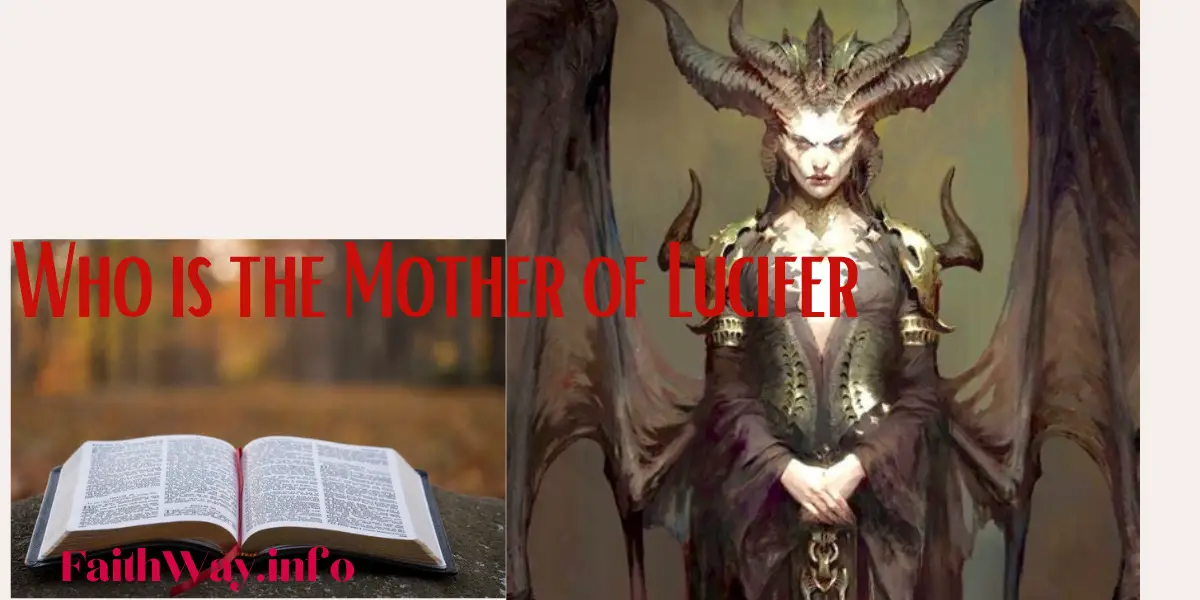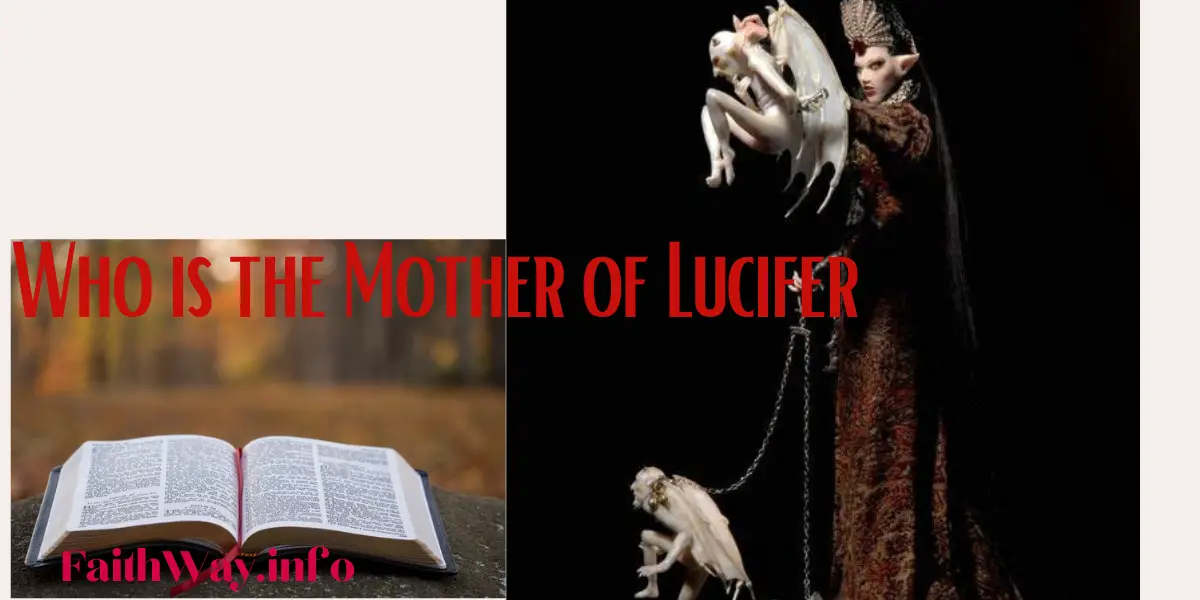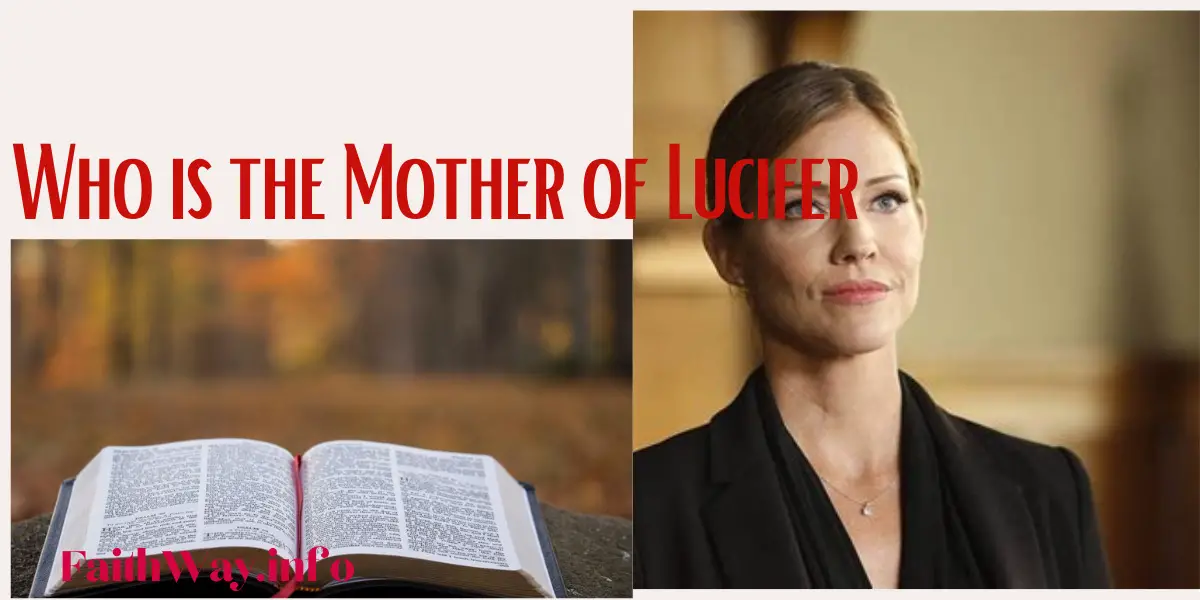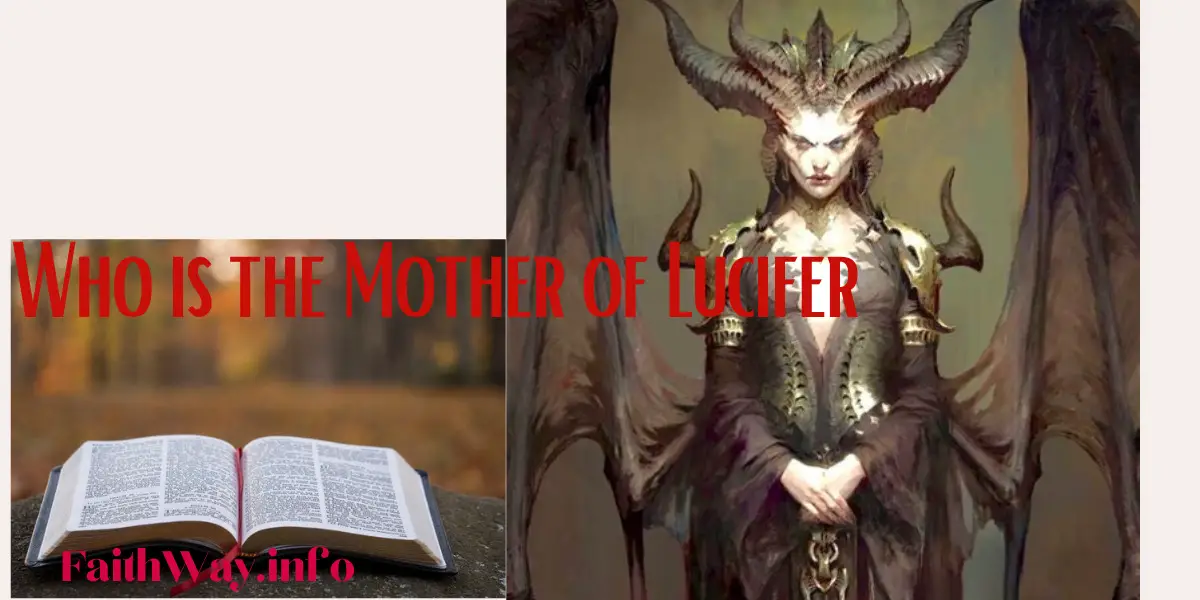The identity of Lucifer’s mother has been a topic of intrigue and debate for centuries.
As a prominent figure in religious texts and popular culture, understanding the origins of the fallen angel can provide valuable insights into the complex tapestry of beliefs surrounding the character.
Despite numerous theories, the biblical identity of Lucifer’s mother remains shrouded in mystery.
While some propose candidates such as Lilith or Eve as possible mothers, there is no definitive proof to support these claims.
In fact, the scarce biblical references that mention Lucifer often leave crucial details surrounding his origins unclarified.
Consequently, the journey to unveil the mother of Lucifer invites a deeper exploration into religious texts, folklore, and interpretations of these timeless stories.
By examining various sources and analyzing possible connections, it becomes apparent that the search for Lucifer’s mother is a complex puzzle with numerous pieces yet to be discovered.
The absence of a clear answer allows for fascinating debates and discussions among scholars, religious followers, and fans of the character, making it a compelling subject matter for further investigation.
Origins of the Lucifer Myth

Judeo-Christian Beliefs
In Judeo-Christian beliefs, Lucifer is often identified as a fallen angel or the devil. The name Lucifer, meaning “Lightbearer” in Latin (Britannica), originally referred to the morning star (the planet Venus at dawn).
In Christian times, Lucifer became associated with Satan before his fall from grace.
This fall is described in biblical texts such as Isaiah 14:12 and Ezekiel 28:11-19, where he is portrayed as a once-perfect angel who desired to be like God and was consequently cast out of heaven.
The identification of Lucifer with Satan has also led to the association of various names for the devil, including the Prince of Darkness, Beelzebub, Mephistopheles, Baphomet, Lord of the Flies, the Antichrist, and Father of Lies (History).
However, it is important to note that different branches of Christianity may hold varying beliefs about Lucifer’s identity and role.

Other Cultural Influences
While the Lucifer myth is primarily rooted in Judeo-Christian beliefs, it has also been influenced by elements from other cultures and religious traditions.
For instance, the Greek and Roman mythologies featured a similar figure named Phosphorus or Eosphoros, who was personified as a male figure bearing a torch, heralding the dawn (Britannica).
Additionally, the concept of fallen angels or lesser deities in rebellion against a higher power can be found in various mythologies around the world.
In some cases, these figures might share certain characteristics or even names with the Christian Lucifer. Understanding the origins and development of the Lucifer myth requires examining both its biblical roots and its connections to other cultural and religious traditions.

Possible Mothers of Lucifer
In the quest to identify the mother of Lucifer, various figures have been proposed over time. This section explores three potential candidates: Lilith, Asherah, and Naamah.
Lilith as Mother
Lilith is a figure from Jewish mythology who is often considered to be the first wife of Adam. Some interpretations suggest that Lilith might be the mother of Lucifer due to her rebellious nature and association with demons.
However, this theory lacks direct evidence, as Lilith is mostly an ambiguous figure with limited connections to Lucifer.

Asherah as Mother
Asherah is a Canaanite goddess who was widely worshipped in ancient times. She is presented as the consort of the Canaanite god El and sometimes associated with God’s wife in ancient contexts.
However, there is no direct evidence linking Asherah to Lucifer, and most connections are drawn from interpretations and speculations rather than clear scriptural or historical references.
Naamah as Mother
Naamah is another figure from Jewish mythology who is sometimes considered as a potential mother of Lucifer.
She is described as a sister of Tubal-Cain and a descendant of Cain, known for her beauty and association with evil spirits.
Again, there is no conclusive evidence linking Naamah to Lucifer, and the theory mostly relies on interpretations and assumptions rather than definitive sources.
Depictions of Lucifer’s Mother in Popular Culture

Literature
In literature, there is no definitive character or figure that consistently appears as Lucifer’s mother. However, some interpretations draw from ancient mythologies and religious texts.
For instance, Lilith, a figure from Hebrew mythology, has been considered by some as the mother of Lucifer. This connection is based on their shared associations with rebellion and darkness.
Another interpretation identifies Eve, the first woman, as Lucifer’s mother. Regardless of the varied depictions and theories, the identity of Lucifer’s mother remains debatable and largely open to interpretation.
Television
In recent television history, the depiction of Lucifer’s mother can be found in the popular TV show “Lucifer.” In the eponymous TV show, the character of Lucifer’s mother is portrayed as the Goddess of All Creation.
Played by Tricia Helfer, she assumes a human form under the name Charlotte Richards. Though not a direct representation from any mythology, her character drives the plot and confirms the existence of a higher power, or “Mrs. God,” in the show’s universe.
Film
The presence of Lucifer’s mother in films is scarce. Most cinematic depictions of the devil or demonic forces tend to focus on Lucifer’s individual character and actions, rather than exploring his origin story or family ties.
While there are countless representations of the devil and demonic entities in film, explicit references to Lucifer’s mother are rare and usually left for interpretation by the audience.
Frequently Asked Questions

Who is Lucifer’s mom on the show?
In the TV show Lucifer, the character known as Goddess is portrayed as Lucifer’s mother. She is played by actress Tricia Helfer and is also referred to as the mother of angels and God’s ex-wife.
Is God’s wife Lucifer’s mother?
In the context of the show, God’s wife is indeed Lucifer’s mother. However, this depiction may not align with various religious or mythological beliefs, where the mother of Lucifer is not explicitly mentioned or clear.
Who are Lucifer’s family members?
In the TV series, Lucifer’s family includes his father (God), his mother (Goddess), and his siblings, who are angels like him. Some of his well-known siblings are Amenadiel, Uriel, and Azrael, among others.
What is Aurora’s connection to Lucifer?
Aurora, also known as the Mother of Creation or God’s wife, has no direct connection to Lucifer in traditional mythology or religious texts. Her connection primarily exists in the context of the TV show where she is depicted as Lucifer’s mother, Goddess.
What happened to Lucifer’s mom?
In the show, Lucifer’s mom, Goddess, decides to leave her current world and create a new universe where she can rule and have a fresh start. With the help of her son Amenadiel, she departs from the main storyline of the series.
Does his mom target Chloe?
Throughout the series, it is evident that Goddess has a complex relationship with Chloe Decker, a homicide detective and Lucifer’s love interest.
Initially, she targeted Chloe to manipulate Lucifer but eventually developed a genuine attachment to her and even saved her life.
However, it should be noted that this storyline is only present in the TV adaptation and not based on any religious or mythological accounts.

Faithway.info, your online sanctuary for deepening your spiritual journey and mastering the teachings of the Bible. At Faithway.info, we are passionate about making the wisdom of the Bible accessible to everyone, fostering a community dedicated to growth, understanding, and support.
